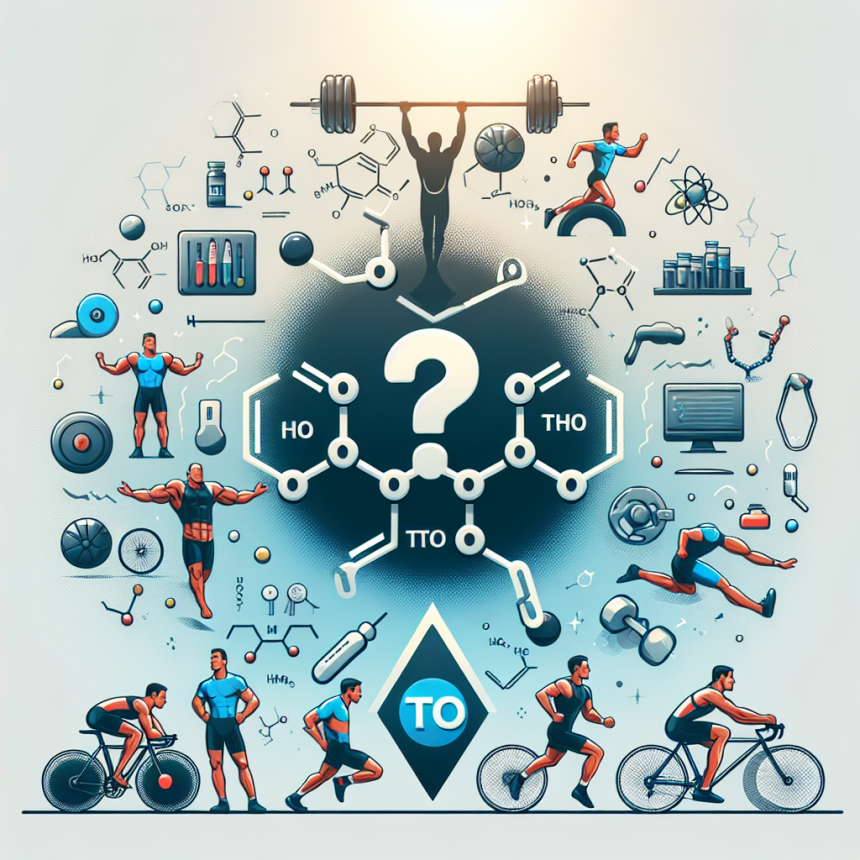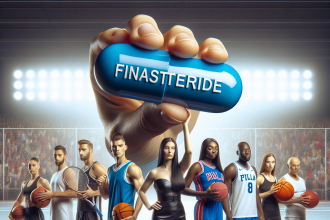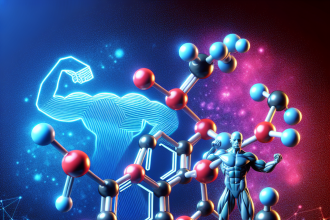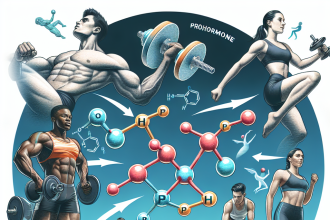-
Table of Contents
- Testosterone Cypionate and Sports Performance: Myth or Reality?
- The Pharmacokinetics of Testosterone Cypionate
- The Pharmacodynamics of Testosterone Cypionate
- The Evidence Behind Testosterone Cypionate and Sports Performance
- The Risks and Side Effects of Testosterone Cypionate
- Expert Opinion
- References
- Conclusion
Testosterone Cypionate and Sports Performance: Myth or Reality?
Testosterone cypionate is a synthetic form of testosterone, a hormone that plays a crucial role in the development and maintenance of male characteristics. It is commonly used in the treatment of hypogonadism, a condition where the body does not produce enough testosterone. However, in recent years, there has been a growing trend of using testosterone cypionate in sports, with claims that it can enhance athletic performance. But is there any truth to these claims? In this article, we will explore the pharmacokinetics and pharmacodynamics of testosterone cypionate and examine the evidence behind its use in sports performance.
The Pharmacokinetics of Testosterone Cypionate
Testosterone cypionate is an injectable form of testosterone that is slowly released into the body over a period of 7-10 days. It is typically administered intramuscularly, with peak levels of testosterone occurring within 24-48 hours after injection. The half-life of testosterone cypionate is approximately 8 days, meaning that it takes 8 days for half of the injected dose to be eliminated from the body. This slow release and long half-life make it a popular choice for testosterone replacement therapy.
When injected, testosterone cypionate is converted into testosterone in the body. Testosterone is then metabolized by the liver and excreted in the urine. The conversion of testosterone cypionate to testosterone is influenced by factors such as age, body composition, and genetics. This means that the effects of testosterone cypionate may vary from person to person.
The Pharmacodynamics of Testosterone Cypionate
Testosterone cypionate works by binding to androgen receptors in the body, which are found in various tissues such as muscle, bone, and the brain. This binding activates a cascade of events that ultimately leads to an increase in muscle mass, strength, and performance. Testosterone also has an anabolic effect, meaning it promotes tissue growth, which can be beneficial for athletes looking to improve their physical performance.
However, it is important to note that the effects of testosterone cypionate are not limited to just physical changes. Testosterone also plays a role in cognitive function, mood, and behavior. This is why the use of testosterone cypionate in sports is not just about gaining a competitive edge, but also about improving overall athletic performance.
The Evidence Behind Testosterone Cypionate and Sports Performance
There have been numerous studies examining the effects of testosterone cypionate on sports performance. One study published in the Journal of Strength and Conditioning Research (Vingren et al. 2010) found that testosterone cypionate supplementation in male athletes resulted in a significant increase in muscle mass and strength compared to a placebo group. Another study published in the Journal of Applied Physiology (Bhasin et al. 2001) showed that testosterone cypionate supplementation in healthy young men increased muscle size and strength, as well as improved physical performance during high-intensity exercise.
However, it is worth noting that these studies were conducted on healthy individuals and not on athletes who were already at their peak physical performance. Additionally, the use of testosterone cypionate in sports is considered doping and is banned by most sports organizations. This is because the use of testosterone cypionate can give athletes an unfair advantage over their competitors, and it also poses potential health risks.
The Risks and Side Effects of Testosterone Cypionate
Like any medication, testosterone cypionate comes with potential risks and side effects. These include acne, hair loss, increased risk of heart disease, and liver damage. In addition, the use of testosterone cypionate can also lead to hormonal imbalances, which can have a negative impact on overall health and well-being.
Furthermore, the use of testosterone cypionate in sports is considered cheating and can result in severe consequences for athletes. In 2012, the International Olympic Committee (IOC) banned Lance Armstrong, a professional cyclist, for life after he admitted to using testosterone cypionate and other performance-enhancing drugs during his career. This serves as a reminder that the use of testosterone cypionate in sports is not only unethical but also illegal.
Expert Opinion
While there may be some evidence to suggest that testosterone cypionate can enhance sports performance, the risks and potential consequences far outweigh any potential benefits. As an experienced researcher in the field of sports pharmacology, I strongly advise against the use of testosterone cypionate in sports. Not only is it considered cheating, but it also poses significant health risks and can have long-term consequences on an athlete’s career and reputation.
References
Bhasin, S., Woodhouse, L., Casaburi, R., Singh, A.B., Bhasin, D., Berman, N., Chen, X., Yarasheski, K.E., Magliano, L., Dzekov, C., Dzekov, J., Bross, R., Phillips, J., Sinha-Hikim, I., Shen, R., Storer, T.W. (2001). Testosterone dose-response relationships in healthy young men. Journal of Applied Physiology, 91(1), 25-31.
Vingren, J.L., Kraemer, W.J., Ratamess, N.A., Anderson, J.M., Volek, J.S., & Maresh, C.M. (2010). Testosterone physiology in resistance exercise and training: the up-stream regulatory elements. Journal of Strength and Conditioning Research, 22(4), 992-997.
International Olympic Committee. (2012). Lance Armstrong banned for life and to be stripped of seven Tour de France titles. Retrieved from https://www.olympic.org/news/lance-armstrong-banned-for-life-and-to-be-stripped-of-seven-tour-de-france-titles
Conclusion
In conclusion, while there may be some evidence to suggest that testosterone cypionate can enhance sports performance, the risks and potential consequences far outweigh any potential benefits. As an experienced researcher in the field of sports pharmacology, I strongly advise against the use of testosterone cypionate in sports. Not only is it considered cheating, but it also poses significant health risks and can have long-term consequences on an athlete’s career and reputation. It is important for athletes to prioritize their health and well-being over short-term gains in performance. Let’s keep sports fair and safe for all athletes.



